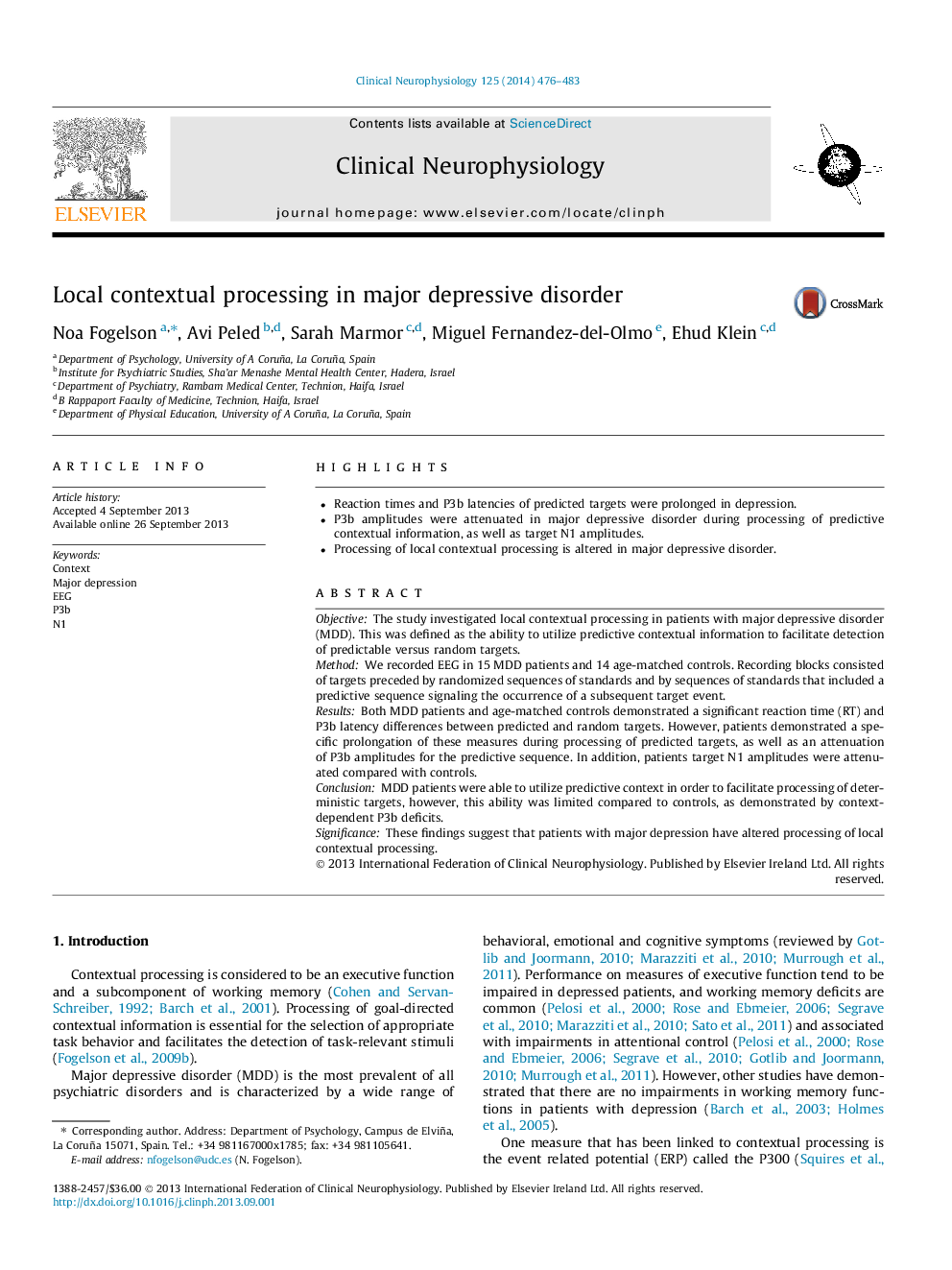| Article ID | Journal | Published Year | Pages | File Type |
|---|---|---|---|---|
| 3043936 | Clinical Neurophysiology | 2014 | 8 Pages |
•Reaction times and P3b latencies of predicted targets were prolonged in depression.•P3b amplitudes were attenuated in major depressive disorder during processing of predictive contextual information, as well as target N1 amplitudes.•Processing of local contextual processing is altered in major depressive disorder.
ObjectiveThe study investigated local contextual processing in patients with major depressive disorder (MDD). This was defined as the ability to utilize predictive contextual information to facilitate detection of predictable versus random targets.MethodWe recorded EEG in 15 MDD patients and 14 age-matched controls. Recording blocks consisted of targets preceded by randomized sequences of standards and by sequences of standards that included a predictive sequence signaling the occurrence of a subsequent target event.ResultsBoth MDD patients and age-matched controls demonstrated a significant reaction time (RT) and P3b latency differences between predicted and random targets. However, patients demonstrated a specific prolongation of these measures during processing of predicted targets, as well as an attenuation of P3b amplitudes for the predictive sequence. In addition, patients target N1 amplitudes were attenuated compared with controls.ConclusionMDD patients were able to utilize predictive context in order to facilitate processing of deterministic targets, however, this ability was limited compared to controls, as demonstrated by context-dependent P3b deficits.SignificanceThese findings suggest that patients with major depression have altered processing of local contextual processing.
